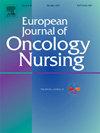癌症患者在姑息治疗中有高级护理计划的经验:定性研究的系统回顾和综合
IF 2.7
3区 医学
Q1 NURSING
引用次数: 0
摘要
目的:本系统综述和meta综合旨在综合PC环境下晚期癌症患者的高级护理计划和高级指示的观点和经验。方法纳入1991 ~ 2024年间发表的定性研究。在六个电子数据库中进行了全面的搜索:CINAHL、Cochrane、OVID、PubMed、Scopus和ScienceDirect。采用乔安娜布里格斯研究所定性研究关键评估清单进行质量评估。主题综合应用于分析20项选定研究的数据,涉及534名参与者。结果得出六个关键主题:(1)高级护理计划(ACP)的意义,(2)启动高级护理计划,(3)障碍和促进因素,(4)高级护理计划中的沟通,(5)高级护理计划的结果,(6)高级护理计划的需求和愿望。研究结果强调,ACP是一个复杂而动态的过程,受情感、社会和制度因素的影响。虽然ACP促进了患者的自主性并减少了焦虑,但不情愿、回避和文化障碍限制了参与。有效的医患沟通、情绪准备和量身定制的干预措施提高了ACP的参与度。结论了解晚期肿瘤患者的观点对于提高ACP在PC环境中的实施至关重要。医疗保健专业人员必须培养信任,提供文化敏感的沟通,并使ACP方法适应患者不断变化的需求。未来的研究应侧重于解决情感和系统障碍,以增加ACP参与和提高临终关怀质量。本文章由计算机程序翻译,如有差异,请以英文原文为准。
Experiences of cancer patients in palliative care with advanced care planning: A systematic review and meta-synthesis of qualitative studies
Purpose
This systematic review and meta-synthesis aims to synthesize the perspectives and experiences of patients with advanced cancer of advanced care planning and advanced directives in a PC setting.
Methods
Qualitative studies published between 1991 and 2024 were included. A comprehensive search was performed across six electronic databases: CINAHL, Cochrane, OVID, PubMed, Scopus, and ScienceDirect. The Joanna Briggs Institute Critical Appraisal Checklist for Qualitative Research was applied for quality assessment. Thematic synthesis was applied to analyze data from 20 selected studies, involving 534 participants.
Results
Six key themes emerged: (1) Meaning of advanced care planning (ACP), (2) Initiating ACP, (3) Barriers and facilitators, (4) Communication in ACP, (5) Outcomes of ACP, and (6) Needs and wishes in ACP. Findings highlight ACP as a complex and dynamic process shaped by emotional, social, and institutional factors. While ACP promotes patient autonomy and reduces anxiety, reluctance, avoidance, and cultural barriers limit engagement. Effective clinician-patient communication, emotional readiness, and tailored interventions enhance ACP participation.
Conclusions
Understanding the perspectives of advanced cancer patients is essential for improving ACP implementation in PC settings. Healthcare professionals must foster trust, provide culturally sensitive communication, and adapt ACP approaches to patients’ evolving needs. Future research should focus on addressing emotional and systemic barriers to increase ACP participation and improve end-of-life care quality.
求助全文
通过发布文献求助,成功后即可免费获取论文全文。
去求助
来源期刊
CiteScore
4.40
自引率
3.60%
发文量
109
审稿时长
57 days
期刊介绍:
The European Journal of Oncology Nursing is an international journal which publishes research of direct relevance to patient care, nurse education, management and policy development. EJON is proud to be the official journal of the European Oncology Nursing Society.
The journal publishes the following types of papers:
• Original research articles
• Review articles

 求助内容:
求助内容: 应助结果提醒方式:
应助结果提醒方式:


